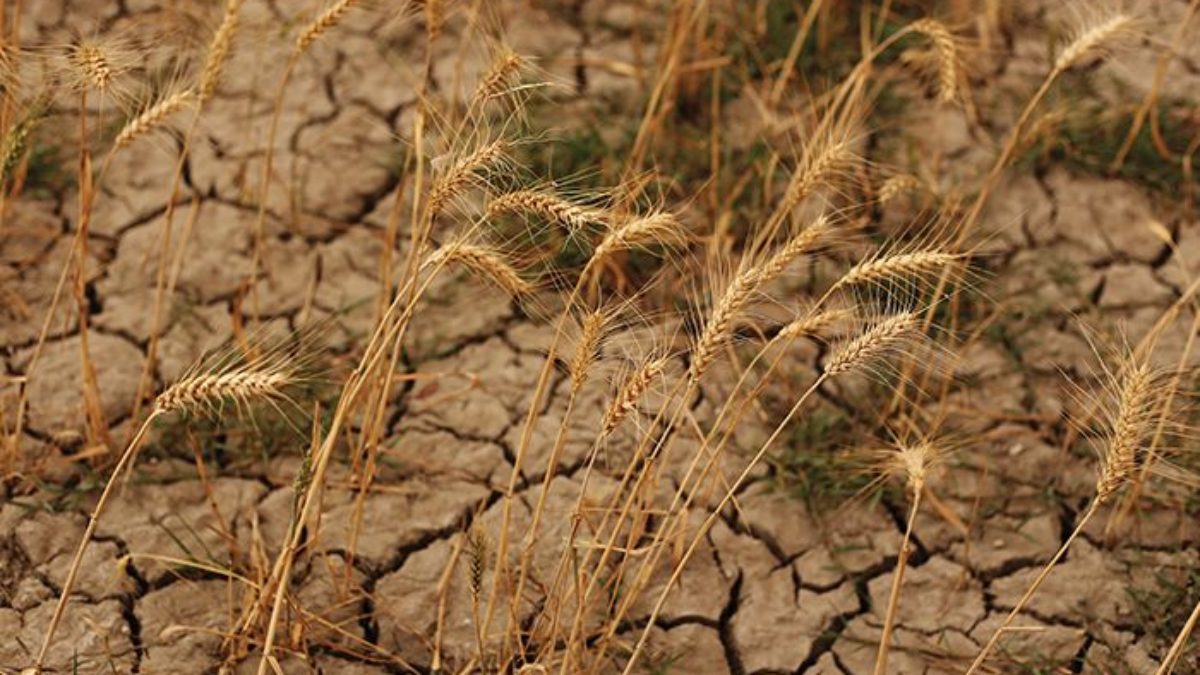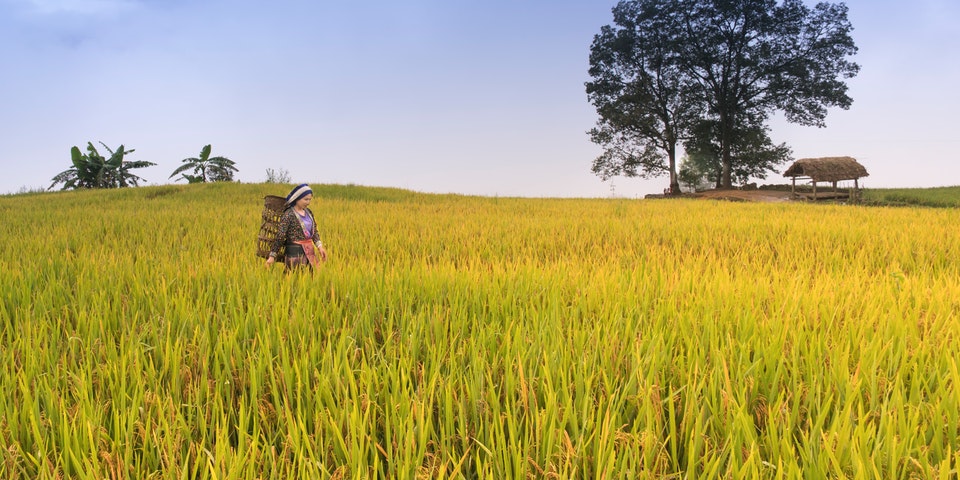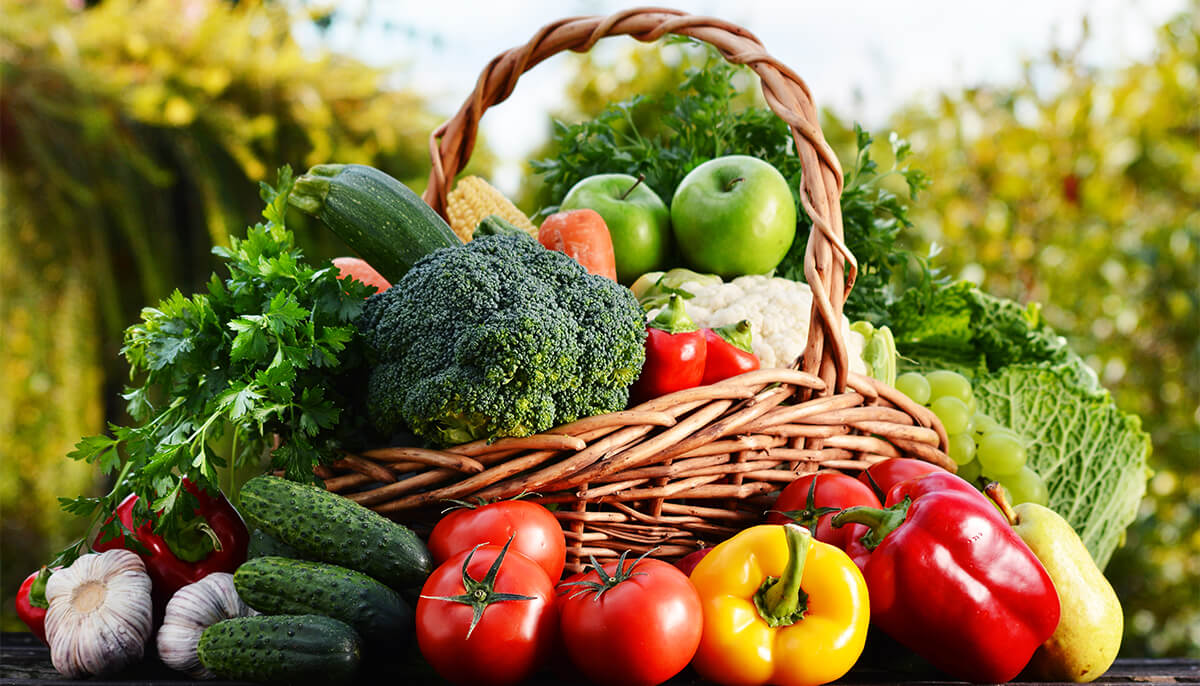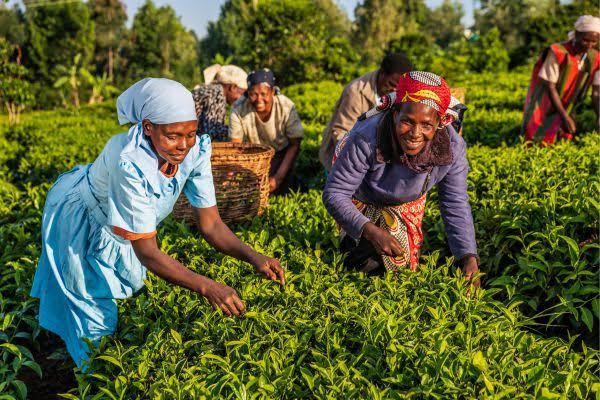STEVE INSKEEP, HOST:
Hot, dry conditions are scorching the wheat crop in Kansas. Here's Nebraska Public Media's Elizabeth Rembert.
ELIZABETH REMBERT, BYLINE: Usually, Kansas is known for its fields of waist-high golden wheat. But this year, the blistering conditions have withered some of the crop into short, patchy straw. Standing in one of his fields in northwest Kansas, Chris Tanner wonders if it'll even make it through harvest.
CHRIS TANNER: I mean, like, this head down here, there's going to be nothing in it. It'll blow out the back of the combine. You can see the seeds kind of exposed there. It'll shatter out even before we get here.
REMBERT: It's fields like these leading industry groups to predict a 100 million bushel drop in Kansas' wheat harvest this year. That's 30% less than last year's harvest. Kansas is one of the country's top wheat-producing states, so a smaller crop could make a dent. Joseph Glauber with the International Food Policy Research Institute says the timing is unfortunate.
JOSEPH GLAUBER: Wheat was tight to begin with, all of a sudden. Ukraine has, you know, anywhere from 5 to 7 million tons of last year's crop that normally would have been marketed by now that's stuck inside the country. So you look at the wheat market. Then you think, OK, well, who can make up this grain?
REMBERT: Well, maybe not Kansas. And Kansas wheat farmers will likely miss out on profiting from historic prices. Wheat's asking price has shot up 50% this year. A 100 million bushel drop works out to a $1 billion loss for Kansas farmers. Here's Chris Tanner again.
TANNER: I don't know. Prices are good. But if you don't have anything to sell, it doesn't really matter what the prices are, so...
REMBERT: It's a double whammy because high fertilizer and fuel prices make it so expensive to grow crops lately. After all, it takes more than just sunshine and water. Let's run the numbers.
TANNER: Just throw 50 bucks out there for rent. I said I put a hundred pounds of fertilizer out. Well, right now current price of fertilizer is a little over a dollar a pound. So there's a hundred and fifty dollars. Now, your herbicide expense is going to be about $10. Harvest expense - approximately $40 an acre. Drilling expense - $20 an acre.
REMBERT: So he's shelled out at least $220. This field usually raises as much as 50 bushels an acre. With the drought, Tanner thinks he'll be lucky to get 20 this year. Even with wheat fetching about $11 a bushel, he'd lose money on that field.
TANNER: And see, we've rapidly wound up in the hole, so...
REMBERT: Farmers need a solid harvest to balance expenses. The drought's threatening that bottom line and could push wheat prices even higher. Bill Lapp is an agricultural economist in Omaha.
BILL LAPP: We're going to have the smallest - the hard red winter wheat crop since 1963. It's made a bad situation worse. And, you know, the cure for high prices, of course, is high prices.
REMBERT: Lapp says bread prices have been ticking up over the past year. A smaller harvest could push up prices to consumers for everything wheat is used in. Chris Tanner says coming up short in the face of global wheat scarcity isn't just a missed paycheck for Kansas farmers. It's personally disappointing.
TANNER: Right now the world is in desperate need of wheat, and we want to do as best of a job as we can to feed them. But we can only do what Mother Nature's allowing right now.
REMBERT: And for now, Mother Nature's holding back Kansas farmers from helping with the global wheat supply.
Source - https://www.mainepublic.org













